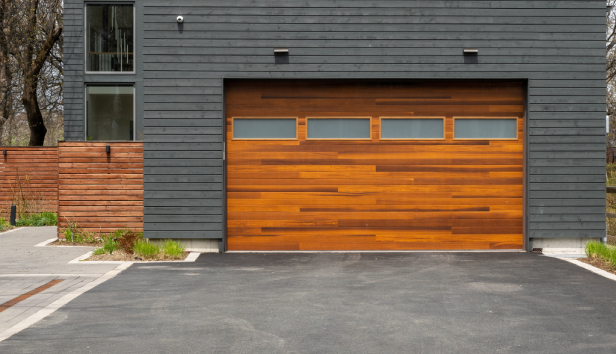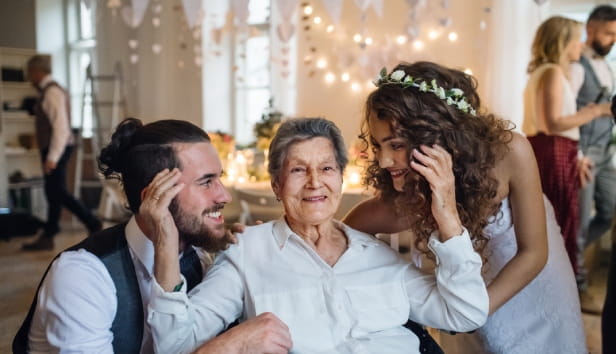.jpg?la=en&h=650&w=1440&hash=7789E2D93E90D3732265EF1AB2B1969E)
This article is for general guidance only and is not financial or professional advice. Any links are for your own information, and do not constitute any form of recommendation by Saga. You should not solely rely on this information to make any decisions, and always obtain independent, professional advice for your own particular situation. All information in this article is correct at the time of publishing, but laws, entitlements, tax treatments and allowances may change in the future.
The growth of first-time homeowners over the age of 50 has increased by 30% in the past five years.
That’s according to mortgage specialist Tembo, which analysed data from the Financial Conduct Authority, and found there were 12,000 over-50 first-time buyers in 2022.
It’s part of a wider picture which sees the number of younger buyers (under 30) declining, due to the longer time taken to save for a deposit, while those aged 40 and over are steadily increasing.
Tembo’s projections suggest that the number of first-time buyers over 50 will rise to 19,000 – or 5% of all new homeowners – by 2030.
So what are the reasons behind this change in the housing market?
Richard Dana, founder and CEO of Tembo, told us: “We’ve seen quite a few people in their 50s and 60s who’ve been buying their first home.
“With headwinds from the cost of living and above-inflation rent increases, the ability to save has been reducing, meaning the time it takes to save for a sufficient deposit is increasing.
“In order to be able to afford a home, people are having to wait for their income to increase. For many people that occurs as they progress and increase in seniority in their jobs.”
Andrew Montlake, managing director of broker Coreco, agrees that over-50 buyers are becoming more present in the first-time buyer market: “It used to be that people would retire at 65, but now many are expecting to carry on working for longer.
“It may also be a time when they’ve either received some kind of inheritance or anticipate doing so and, as a result, are in a better position to buy.”
Another part of the picture is the increase in the price of rented property. “People don’t want to negotiate year after year or risk being evicted. They want a place they can call their own and the security of that.
“Even though mortgage rates have increased, they still often compare favourably with rents that are continuing to rise.”
Historically, older buyers have struggled to get a mortgage, because they may have less time to repay the loan before they potentially stop working and have a drop in income.
However, Dana says there are now more specialist lenders who will consider older first-time buyers.
Although buyers will still need to go through a full affordability check by their lender, older borrowers who have saved for retirement may still be viewed as lower risk, if it can deliver a relatively reliable income stream.
But it is important not to go into home ownership at any age – and especially if an older buyer – without understanding the implications of doing so.
Paula Higgins, chief executive of the HomeOwners Alliance, told us that in addition to using a mortgage broker to find the best deals, it’s also worth talking to an independent financial adviser to discuss your retirement income.
She says: “You will need to prove you have adequate income to cover the repayments post-retirement in the same way as you would if you were working full-time. You should expect to show your bank statements and a statement that confirms your pension payments.”
It’s also important to fully explore what ongoing costs might be involved, if you are buying leasehold or shared ownership property, for example, which could have further costs beyond the monthly mortgage paid.
Of course, there are always caveats. Different lenders have different rules and your own personal circumstances, such as credit history or employment prospects, will also be taken into consideration.
For Samantha Jayne Scott, a self-employed spiritual coach, getting the keys to her own home was a huge milestone – albeit one she arrived at later than she hoped.
The mother-of-two was 52 when she joined the ranks of first-time buyers just a few days into the New Year.
“I’ve always rented but have been trying to scrape together a deposit for my own place for 10 years now.
“I’ve saved a fair bit, but it was my dad’s death last year that really made it possible. He wanted me to use the sum he left me to help buy a home, so it feels very emotional that he’s made it possible.”
Thanks to her father, Mike, Samantha was able to put down a deposit for a third of her two-bedroom flat’s value, taking an 18-year mortgage for the remainder, which she’ll pay off just before she turns 70.
The monthly mortgage repayment is less than she was paying in rent in Swindon and gives her the security she has been craving for her and her two daughters, who come home for university holidays.
“It’s a big step but one I am delighted to have taken. Far scarier was the thought of having to stay in a rented home, with no control over rising rents, and the fear that one day I’d end up in a bedsit because that would be all that I could afford.”
While getting on the property ladder might be exciting, it’s also crucial to remember that your home may be at risk if you don’t keep up your repayments, so being confident of being able to pay a first-time mortgage is important.
But the days when you’d set yourself up with a mortgage in your 20s and pay it off comfortably before retirement are quickly changing. Instead, the number of older buyers looks set to increase.
Montlake says: “Instead of [older buyers] thinking that they’ve missed the boat in terms of buying a place of their own, they start to see it might be possible after all.”


.jpg?la=en&h=650&w=1440&hash=D2D232A61FCEAEBDC0D69D8AE38E8E41)



The key times when we often forget to dig out and check our inheritance plans.

Our guide shows you how to exchange or sell your old coins and notes – including the easiest way to do it.